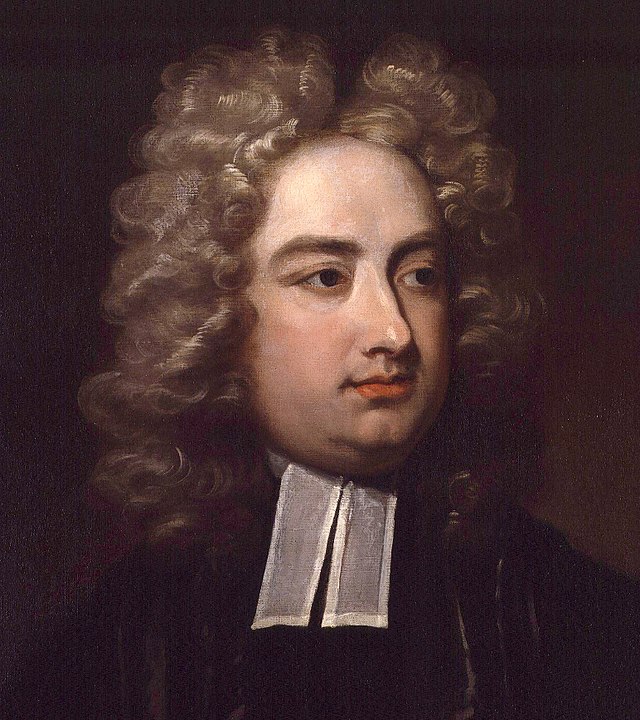
Abstract
Jonathan Swift was a remarkable writer, satirist, and thinker who shaped English literature during the 17th and 18th centuries. Best known for his satirical masterpiece Gulliver’s Travels, Swift’s life was filled with unique experiences, powerful writings, and thought-provoking ideas. This article presents 15 interesting facts about Swift, each revealing the depth of his personality, beliefs, and literary genius. These facts go beyond textbooks and explore Swift’s journey as a writer, political commentator, and human being—offering readers a richer understanding of his legacy.
Introduction
Jonathan Swift is often hailed as one of the greatest satirical writers in English literature. His bold criticism of societal flaws, political corruption, and human hypocrisy set him apart from his contemporaries. While most readers are familiar with Gulliver’s Travels and A Modest Proposal, there are many lesser-known but equally captivating aspects of his life. This article dives into 15 lesser-known facts about Swift, offering fresh insights into the mind and world of this iconic writer.
1. Jonathan Swift Was Born in Dublin, Ireland (1667)
Jonathan Swift was born on November 30, 1667, in Dublin, just months after the death of his father. Raised in a financially unstable household, Swift’s early life was marked by hardship and uncertainty. Despite the odds, he grew up to become one of the most respected intellectuals of his time. His Irish roots deeply influenced his writing, especially his passionate defense of Ireland against British exploitation.
2. He Was Raised by His Uncle
After his father’s death, Swift’s mother sent him to live with his uncle, Godwin Swift, who played a crucial role in shaping his education and future. Godwin ensured that Jonathan received a classical education, which laid the foundation for his later achievements. This early exposure to books, language, and logic helped him develop the sharp intellect he would become known for.
3. He Was a Student at Trinity College, Dublin
Swift entered Trinity College at the age of 14. Though he completed his degree in 1686, he was often rebellious and undisciplined in his studies. His academic performance was average, and he even faced temporary suspension for misbehavior. However, his time at Trinity exposed him to philosophical and political ideas that would later shape his writing.
4. He Worked as a Secretary to Sir William Temple
After college, Swift moved to England to work as a secretary for Sir William Temple, a retired diplomat and essayist. This position gave Swift access to high society and intellectual circles, and he learned much about international politics and literature. It was during this time that he began developing his unique voice as a writer.
5. He Wrote Under a Pseudonym
To express controversial opinions and avoid backlash, Swift often published his works anonymously or under pseudonyms like “Isaac Bickerstaff.” This strategy allowed him to critique governments, institutions, and social practices freely. A Modest Proposal, for instance, was published without his name, although his sharp wit left little doubt about the author’s identity.
6. Gulliver’s Travels Was Not Just a Children’s Book
Although often presented as a children’s adventure, Gulliver’s Travels is a deep political and philosophical satire. Through the travels of Lemuel Gulliver, Swift criticizes European politics, human pride, scientific arrogance, and colonialism. Each journey—whether to Lilliput or the land of the Houyhnhnms—offers layered commentary that challenges readers to reflect on their society.
7. He Became a Clergyman
Swift was not only a writer but also a religious man. He was ordained in the Church of Ireland and eventually became the Dean of St. Patrick’s Cathedral in Dublin. His sermons and church leadership reflected the same clarity and conviction seen in his literary works. Swift used his religious platform to advocate for social justice and moral reform.
8. A Modest Proposal Was a Shocking Satire
Published in 1729, A Modest Proposal remains one of the most powerful examples of irony in literature. Swift sarcastically suggested that poor Irish families could sell their children as food to the rich to solve poverty. Though absurd, this shocking proposal exposed the cruelty and indifference of British policy toward the Irish. It is still studied today as a masterclass in persuasive and satirical writing.
9. He Fought Against British Policies in Ireland
Swift was deeply involved in political activism, especially concerning Irish rights. His Drapier’s Letters criticized the British attempt to introduce a new currency that would devalue Irish money. The letters were so influential that they sparked public protests and forced the British government to cancel the currency plan. Swift became a national hero in Ireland for his efforts.
10. He Had a Mysterious Love Life
Swift’s personal relationships remain a topic of speculation. He had deep bonds with two women—Esther Johnson (whom he called Stella) and Esther Vanhomrigh (Vanessa). Some believe he secretly married Stella, but no formal record exists. His emotional letters to her, known as Journal to Stella, reveal a side of Swift that is tender and affectionate, contrasting with his often harsh satirical tone.
11. He Suffered from an Unknown Illness
In his later years, Swift suffered from chronic dizziness, memory loss, and speech issues. Today, many scholars believe he had Ménière’s disease, a disorder of the inner ear. These health struggles affected his writing and public life, yet he continued to produce thought-provoking works even during periods of illness.
12. His Brain Was Examined After His Death
Swift passed away on October 19, 1745, at the age of 77. Intrigued by his mental decline, doctors examined his brain posthumously and found signs of physical degeneration. His illness and final years became a topic of medical study, making Swift one of the earliest cases of neurological research in literary history.
13. He Left His Money for Charity
Swift was deeply concerned with mental health and poverty. Upon his death, he donated a large portion of his fortune to establish St. Patrick’s Hospital for the mentally ill in Dublin. The hospital still operates today and stands as a lasting testament to his humanitarian values.
14. His Famous Quotes Are Still Remembered
Swift’s writings are full of memorable quotes that remain relevant even today. For instance:
- “Vision is the art of seeing things invisible.”
- “When a great genius appears in the world, you may know him by this sign: that the dunces are all in a confederacy against him.”
- “Satire is a sort of glass, wherein beholders do generally discover everybody’s face but their own.”
These words capture the essence of Swift’s ability to observe and reflect on human nature with unmatched precision.
15. His Legacy Lives On
Jonathan Swift’s influence stretches far beyond his lifetime. His bold use of satire paved the way for modern writers like George Orwell, Mark Twain, and even political cartoonists. Gulliver’s Travels and A Modest Proposal continue to be studied in schools and universities around the world, proving that Swift’s pen was mightier than any sword.
Conclusion
Jonathan Swift was not just a writer; he was a visionary who used his literary skills to fight for justice, question authority, and speak on behalf of the voiceless. These 15 fascinating facts reveal a man who was complex, brilliant, and courageous. His sharp wit, fearless opinions, and deep compassion ensure that his legacy continues to inspire new generations. Through satire, Swift not only entertained the world but also forced it to think.
Bibliography
- Damrosch, L. (2013). Jonathan Swift: His Life and His World. Yale University Press.
- Ehrenpreis, I. (1983). Swift: The Man, His Works, and the Age. Harvard University Press.
- Swift, J. (1726). Gulliver’s Travels. Benjamin Motte.
- Swift, J. (1729). A Modest Proposal. Dublin Printers.
- Williams, K. (2004). Jonathan Swift and the Age of Satire. Oxford University Press.
